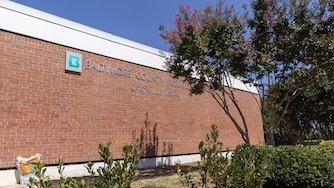Maryland’s transportation secretary, Paul J. Wiedefeld, is leaving his post at the end of the month.
Wiedefeld has been transportation secretary for more than two years, overseeing the response to the collapse of the Key Bridge, relaunching planning for the proposed east-west Red Line in Baltimore and getting construction of the Purple Line back on track in the Washington suburbs.
Wiedefeld, 69, brought extensive experience to the role, with a four-decade career in transportation and transit, including previous tenures leading the D.C. Metro system, Baltimore-Washington International Thurgood Marshall Airport and the Maryland Transit Administration.
“I’m approaching 70 in August. I really think it’s time for me to move on, and there’s other things I want to do,” Wiedefeld said in an interview. “The nature of this job is extremely demanding, personally and professionally.”
One particularly taxing part is being notified each time there’s a death on a state highway, train or bus. “It’s a constant reminder of what can we do, what should we do, how can we do it better,” he said.
Wiedefeld said his departure was “totally my choice” and he raised the prospect of leaving with Gov. Wes Moore recently. He is weighing his next steps, looking at options for consulting, working with nonprofits or serving on boards.
Wiedefeld is the fifth of Moore’s cabinet secretaries to leave a post this year. The others: Kevin Anderson, the commerce secretary who was moved into an advisory role in January; Laura Herrera Scott, who resigned as health secretary in February; Tony Woods, who left his post as secretary of veterans and military families in May; and Vincent Schiraldi, who was juvenile services secretary until last month.
Schiraldi and Moore have given differing accounts of the terms of Schiraldi’s departure.
Deputy Secretary Samantha Biddle will take over the Maryland Department of Transportation on an acting basis starting Aug. 1, while the Moore administration conducts a national search for a secretary. Lt. Gov. Aruna Miller, who previously worked as a transportation engineer, will head the search.
“Under Paul’s leadership, we’ve made it easier for Marylanders to get from where they live to where opportunity lies — and laid the foundation for a more competitive, affordable state for all,” Moore, a Democrat, said in a statement.
During his time as secretary, Wiedefeld said, he’s most proud of improving the culture and morale within the 11,000-employee Department of Transportation.
When he worked at MDOT earlier in his career, Wiedefeld said, there was a sense of pride among the workforce.
“When I came back, I felt we had lost some of that culture — how talented we are, how we impact so many lives," he said.

Wiedefeld said he worked hard to bring credibility to the department, which helped with asking for the large sums of money needed to take on big projects.
As he departs, the state is in the early stages of rebuilding the Key Bridge, which tumbled into the Patapsco River following a ship strike in 2024. The Red Line remains in limbo, and the Purple Line isn’t finished.
There also are ongoing questions about the best ways to fund transportation projects. A state commission that was studying the issue has been disbanded.

Wiedefeld said funding questions are being wrestled with at the local, state and national levels.
“We have to recognize the value of what we do and then the cost associated with it,” he said. “I think it’s something that needs a much larger discussion beyond just Maryland to get our arms around it.”
Before he clocks out at the end of the month, Wiedefeld said, his to-do list will include nailing down certain federal grants and preparing Biddle and the team to take over.
“It’s not time to back off,” he said.






Comments
Welcome to The Banner's subscriber-only commenting community. Please review our community guidelines.